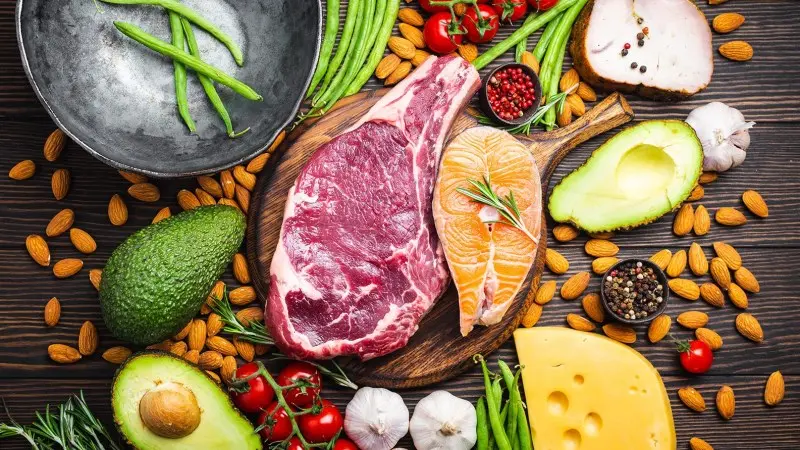Low carb diets have gained popularity due to their potential benefits, including weight loss, improved blood sugar control, and increased energy levels. Adopting a low carb diet involves reducing carbohydrate intake and focusing on consuming foods that are rich in protein, healthy fats, and essential nutrients.
In this comprehensive guide, we will explore a diverse array of delicious low carb diet foods that can support your health goals and keep your taste buds satisfied.
1. Non-Starchy Vegetables
Non-starchy vegetables are excellent choices for a low carb diet as they are packed with fiber, vitamins, minerals, and antioxidants while being relatively low in carbs. Some noteworthy options include:
- Leafy greens: Spinach, kale, lettuce, and Swiss chard.
- Cruciferous vegetables: Broccoli, cauliflower, Brussels sprouts, and cabbage.
- Zucchini and summer squash.
- Bell peppers.
- Asparagus.
- Green beans.
- Mushrooms.
Highlight: House Decor for Every Style
2. Protein-Rich Foods
Protein is a crucial component of a low carb diet as it promotes satiety, helps preserve muscle mass, and supports various bodily functions. Incorporate the following protein sources into your low carb meal plan:
- Lean meats: Chicken breast, turkey, lean cuts of beef, and pork.
- Fish: Salmon, trout, tuna, sardines, and mackerel.
- Shellfish: Shrimp, lobster, crab, and mussels.
- Eggs: A versatile and affordable protein option.
- Dairy products: Greek yogurt, cottage cheese, and hard cheeses.
- Plant-based proteins: Tofu, tempeh, lentils, and chickpeas.
3. Healthy Fats
Including healthy fats in your low carb diet is essential for overall health, providing energy, and supporting various bodily functions. Opt for these healthy fat sources:
- Avocados: Rich in monounsaturated fats, fiber, and vitamins.
- Nuts and seeds: Almonds, walnuts, chia seeds, flaxseeds, and pumpkin seeds.
- Olive oil, coconut oil, and avocado oil.
- Full-fat dairy products: Butter, ghee, and full-fat yogurt.
- Fatty fish: Salmon, mackerel, and sardines.
- Nut butter: Natural almond butter, peanut butter, or cashew butter (without added sugars).
4. Low Carb Fruits
While fruits contain natural sugars, some options are relatively low in carbs and can be enjoyed in moderation
- Berries: Strawberries, raspberries, blackberries, and blueberries.
- Melons: Watermelon and cantaloupe (consume in moderation due to slightly higher sugar content).
- Avocado: Technically a fruit, it is low in carbs and high in healthy fats.
5. Low Carb Grains and Alternatives
If you prefer incorporating grains into your low carb diet, there are some low carb options available:
- Quinoa: A pseudo-grain with a lower carb content than traditional grains.
- Cauliflower rice: A versatile and low carb alternative to traditional rice.
- Shirataki noodles: Made from the konjac plant, these noodles are virtually carb-free.
6. Herbs, Spices, and Condiments
Enhance the flavors of your low carb meals with the following additions:
- Fresh herbs: Basil, cilantro, parsley, rosemary, and thyme.
- Spices: Turmeric, cumin, paprika, cinnamon, and garlic powder.
- Vinegars: Apple cider vinegar, balsamic vinegar, and red wine vinegar.
- Hot sauces and mustard (check labels for added sugars).
- Low sugar or sugar-free condiments: Mayonnaise, salsa, and soy sauce.
Related Posts: Best Kitchen Tile Backsplash Ideas: Express Your Style
Conclusion
Embracing a low carb diet does not mean sacrificing taste or variety. By focusing on nutrient-dense foods like non-starchy vegetables, lean proteins, healthy fats, and low carb fruits, you can create delicious and satisfying meals while reaping the benefits of a low carb lifestyle.
Experiment with different ingredients, flavors, and cooking methods to keep your low carb journey exciting and sustainable. Remember to consult with a healthcare professional or registered dietitian before making any significant changes to your diet, especially if you have underlying health conditions or specific dietary requirements.



